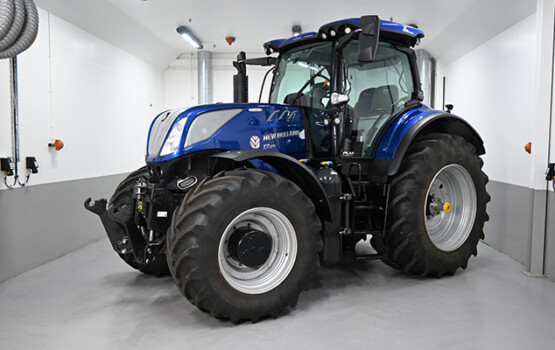Portal for more climate-friendly mobility

Electric hype and biogas facts
The truck industry must also change and reduce CO2 emissions, which is why it says “goodbye” to diesel. The world’s most important trade fair, IAA in Hanover, shows what the future of the commercial vehicle industry looks like. And in the world of buses, vans, trucks, trailers and superstructures, not only electricity but also biogas plays an important role.
Source: Scania
Around 530,000 trucks are on the road in Germany, of which less than 500 are currently powered by an electric engine. Nevertheless, many manufacturers are currently presenting a plethora of electric trucks at the largest commercial vehicle trade fair, IAA in Hanover. Volvo, Mercedes and even the Chinese manufacturer FAW want to deliver at least half of their new vehicles with electric engines from 2030 onwards. MAN unveils a new electric truck with a range of 800 kilometres, which is scheduled to hit the road in 2024. And the joint venture between Iveco and US manufacturer Nikola wants to offer its electric truck in Europe by as early as 2023.
The electric hype at the industry’s largest trade fair is not entirely voluntary, as EU policy requires heavy trucks to reduce CO2 emissions by 15% from 2025 and 30% from 2030 compared to 2020. Like Hyundai, which uses around 50 fuel cell trucks in Switzerland as part of the pay-per-use system, Volvo Trucks wants to use hydrogen-powered HGVs, among other things. Customer tests of the vehicles developed in collaboration with Mercedes are scheduled to begin in 2025 – in other words, three years from now at the earliest.
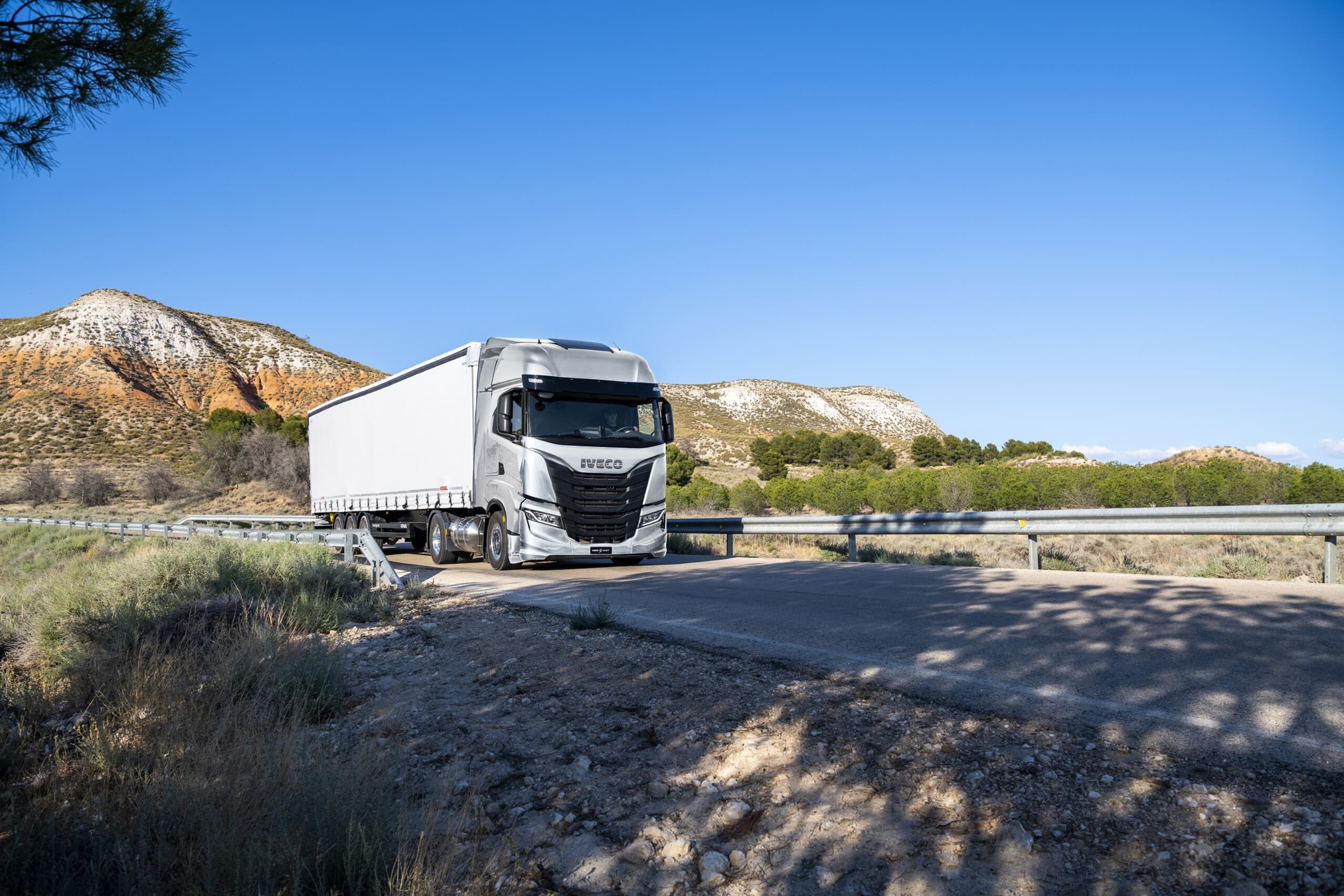 The Iveco S-Way with LNG propulsion enables more sustainability – even in long-distance transport. Source: Iveco
The Iveco S-Way with LNG propulsion enables more sustainability – even in long-distance transport. Source: Iveco
Unfortunately, it is often forgotten in this process that CO2 emissions can already be massively reduced or even eliminated with a reliable technology that is also suitable for long-distance transport: the CNG or LNG engine. With biogas or bio-LNG/LBG, even large trucks are now able to be driven in an almost CO2-neutral manner from A to B. The Swedish manufacturer Scania and the Italian brand Iveco are also aware of this. The Italians point out that the best way to drive in the future of heavy goods transport is to be technology-neutral.
At IAA in Hanover, Iveco will be presenting vehicles with gas, electric and hydrogen engines for a variety of applications – from urban to long-distance transport. For them, biogas-powered vehicles play an important role in achieving sustainability and net-zero emissions targets, as they have the added advantage of enabling the development of a circular economy. On display at the Iveco booth is a Daily CNG panel van for parcel delivery and an S-Way swap body chassis with an LNG engine for international long-distance transport. Thanks to two state-of-the-art 540-litre LNG tanks, the S-Way has a range of up to 1,600 kilometres.
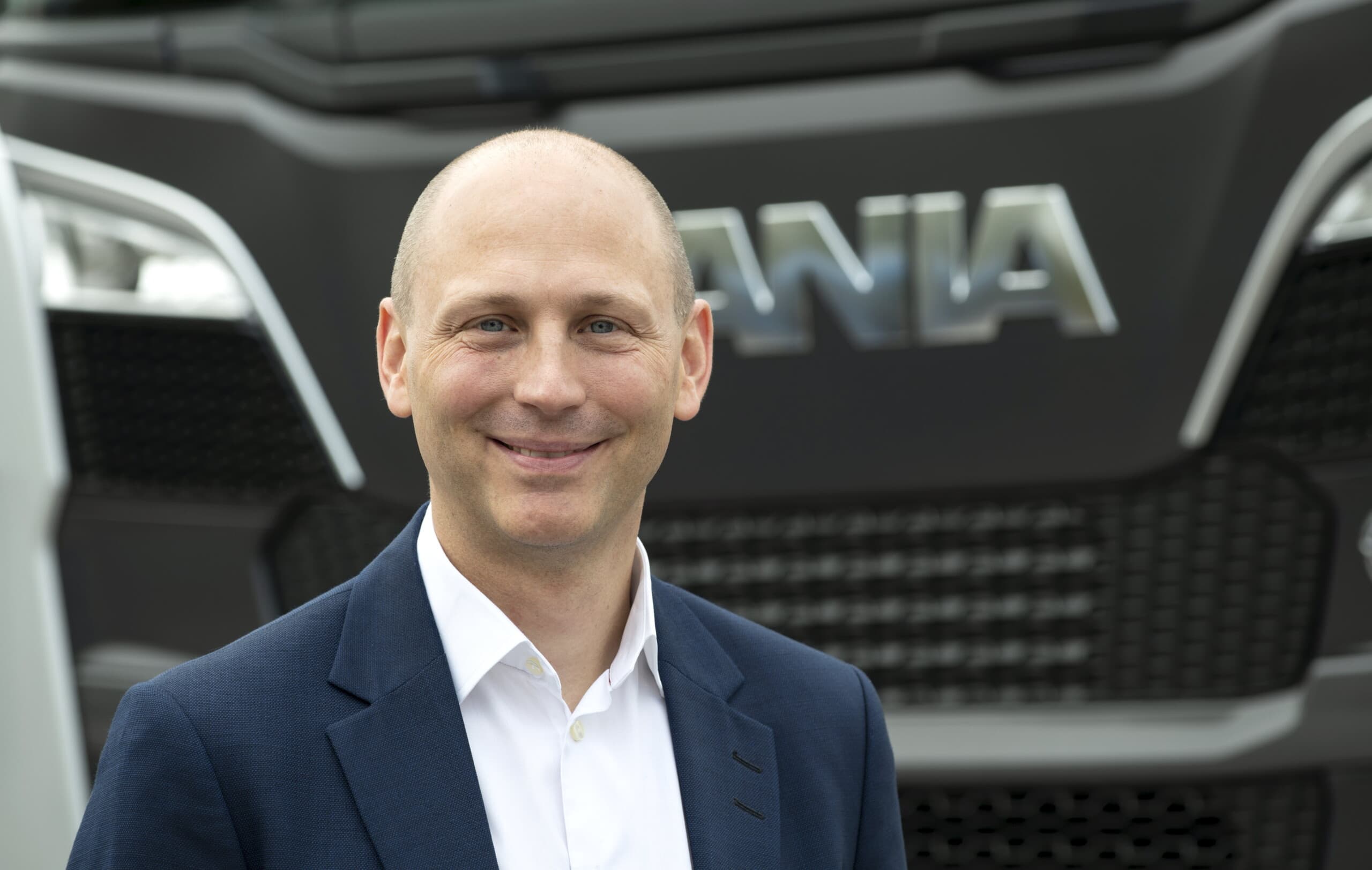
Stefan Dorski, senior vice president and head of Scania Trucks, advocates technology openness and gas engines. Source: Scania
The Swedish manufacturer Scania has brought two new, high-performance biogas engines to the trade fair, among other innovations. This goes hand in hand with Scania’s major gas initiative at the beginning of this year, when several new gas tank solutions were presented. The new 13-litre engines offer 420 and 460 hp and cover most of the high power demand of the European truck market – including long-distance transport.
“Long-distance articulated trucks with a train weight of 40 tonnes that have liquefied biogas in their tanks can now expect ranges of up to 1,400 kilometres,” explains Stefan Dorski, Senior Vice President and Head of Scania Trucks. “As the filling station networks are also growing rapidly, gas-powered trucks have become a really strong alternative for customers who want to stop using fossil fuels and reduce their CO2 footprint.” According to the Swedes, electrification and lower consumption of internal combustion engines are not enough to meet their own targets and those of the Paris Agreement. All available means and engine technologies would have to be used.
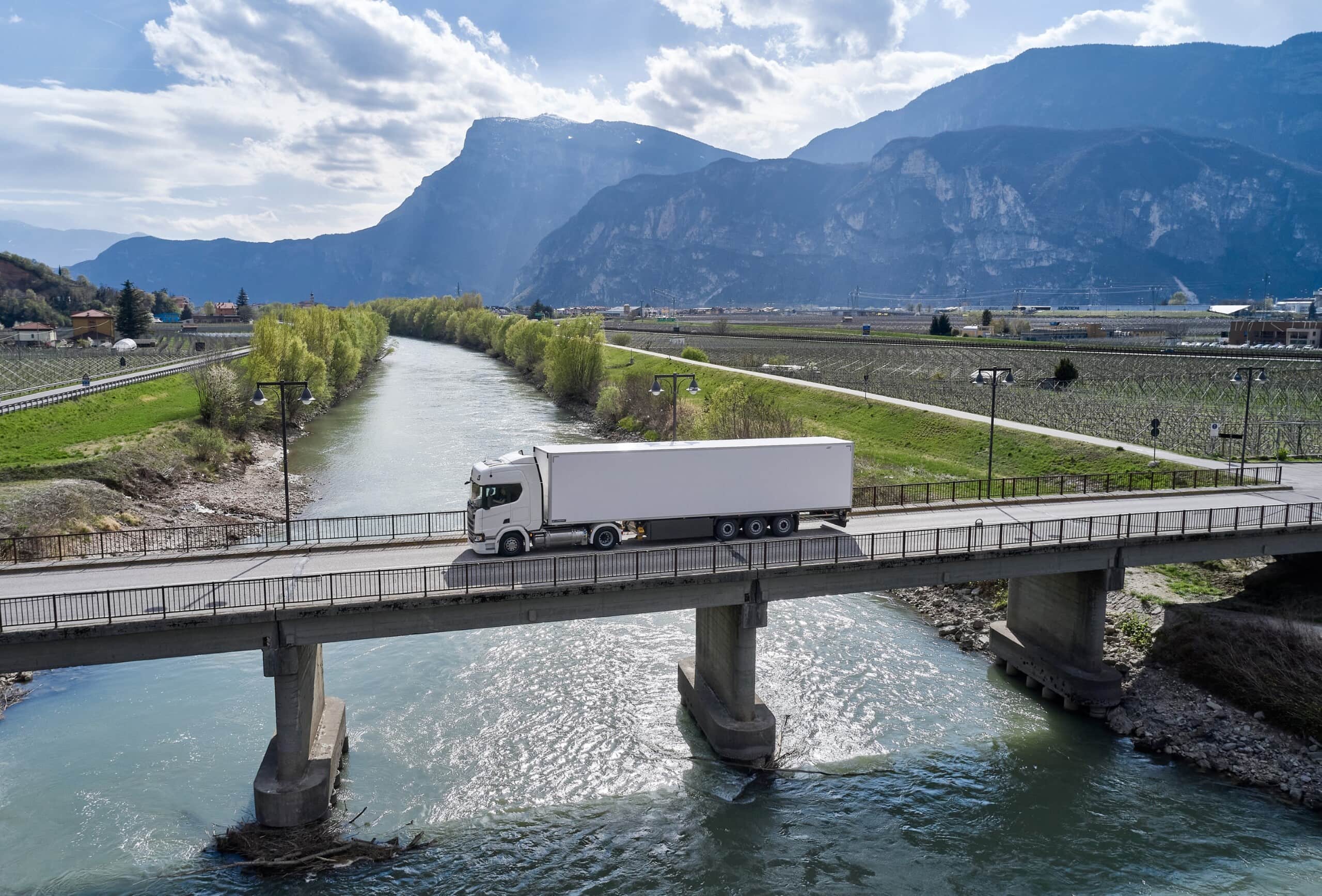 Scania trucks will soon be available with new 13-litre engines with 420 and 460 hp. Source: Scania
Scania trucks will soon be available with new 13-litre engines with 420 and 460 hp. Source: Scania
“From an economic point of view, we see great potential in biogas,” explains Dorski. “With the flexibility, cost-effectiveness and reach we can now offer, I am confident that customers will see what a great solution this is. Even markets where gas used to play only a minor role now understand how attractive this fuel has become in recent years. Operating gas-powered trucks is easy compared to other alternatives and does not compromise on drivability, flexibility or driver comfort.” (pd/jas, 29 September 2022)
You might also be interested in
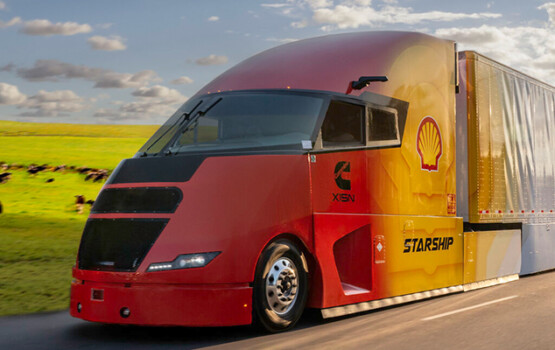
Shell Starship on record hunt
